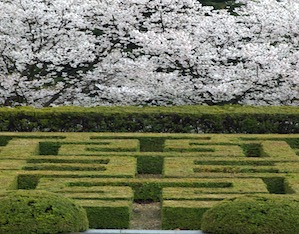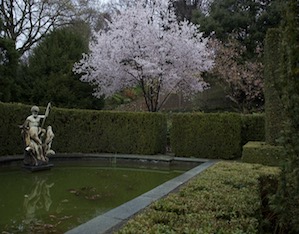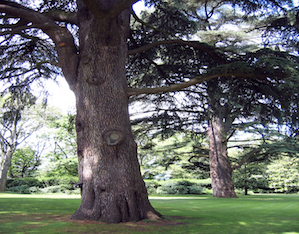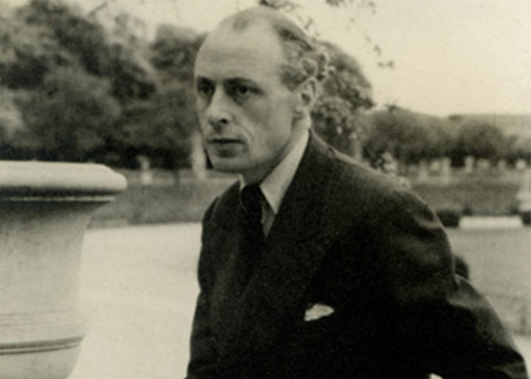From the Spielberg fortress to Turin: this time-honoured villa property of the Marquee Falletti di Barolo was where Silvio Pellico settled after he was released from the Hapsburg prison in Brno. The villa’s modern formal garden is a creation by English landscape designer Russell Page.
The villa is one of the classic “vineyard” properties nested in the hilly landscape surrounding Turin where aristocratic families would reside during the summer months and where also wine was produced. Commissioned by the Falletti di Barolo family on the hills of Moncalieri, where the royal Castello di Moncalieri attracted Turin’s aristocracy, Villa Silvio Pellico was enlarged – with the addition of Gothic Revival features – during the 19th century and surrounded by a landscaped park. Silvio Pellico was a frequent guest of the Marquise Giulia di Barolo, for whom he worked as secretary and librarian. Being in poor condition the garden was partially redesigned in 1948 by the famous British landscape designer Russell Page who was commissioned the work by the Ajmone Marsan family who at the time owned the property. Page’s garden unfolds on the slopes of the hill, structured in terraced levels set on an axis with the villa, creating a space of such beauty and balance that critics consider this project of his to be a “pleasing demonstration of his understanding of the classical Italian garden”. The peaceful quality of its masterful design, composed of boxwood hedges and yew trees, ponds, and a set of sphinx, Neptune, and Pan sculptures, recombines the villa with a formal garden space which had been removed when the English-style landscape transformation was introduced. This masterful integration creates a seamless dialogue with the older garden and its monumental trees.





